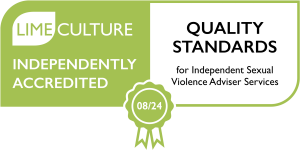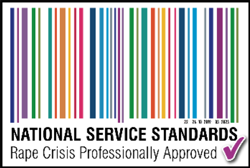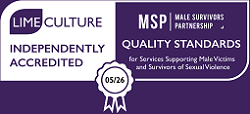Support for Males
It doesn’t matter how or when the abuse happened, if you are male (or identify as male) we are here for you.
It is estimated that around 12,000 men are raped and 70,000 are sexually assaulted or abused every year in the UK. Many more are survivors of sexual abuse that happened in childhood.
It doesn’t matter how or when the abuse happened, if you are male (or identify as male) we are here for you.
You deserve support
We know that asking for support after experiencing sexual abuse or sexual violence can be very difficult. It doesn’t matter how or when the abuse happened, if you are male (or identify as male) we are here for you. We will listen to you, believe you and support you and help you choose the support that is right for you.
Our Male Quality Standards accredited services, include helpline and drop-in, counselling and a range of therapies including CBT (cognitive behavioural therapy), and email support. We also provide Independent Sexual Violence Advisor Service and a Survivors’ Support Service for adults who experienced institutional child sexual abuse, both of which are independently accredited by Lime Culture. Support is offered free of charge, we will only pass on information where there is a real need – for example if someone is unsafe. We will not put pressure on you to report to the police.
While this page covers some of the queries or information that might specifically affect you as a male survivor, the rest of our website is written for all survivors (aged 18 and above) and will also be useful to you. Male survivors who also identify as Gay, Bisexual or Trans, or men who are having sex with men might also find our page and leaflet for LGBT survivors useful.
Supporting You to Access Our Services
We offer a range of options which may make it easier for you to access our services. These include:
- The ability to refer into our services via the helpline or our online contact form
- Support which can be face-to-face, by telephone or through our online counselling rooms
- Appointments available on a weekly or two-weekly basis
- Appointment slots in the daytime, evening and weekend
- A choice of a male or female support worker
We also have other support options in place, including access to interpreters including BSL interpreters, accessible rooms and support via email. Our services are available to all and we will work to adapt them to meet your individual needs.
Myths and Stereotypes
We dismantle some of the myths that might act as a barrier to you getting support
There are many myths and stereotypes which can especially affect male survivors of sexual abuse. None of these are helpful and they can act as a barrier to stop people getting support.
Our support staff are aware of these unhelpful myths and the impact it can have on you as a survivor. We actively challenge these myths through our media and campaign work.
Myth: Men can’t be sexually abused
Reality: Any man or boy can experience sexual abuse. It can happen regardless of their size, strength or sexual orientation.
Myth: Women cannot sexually abuse men (or boys)
Reality: While the majority of perpetrators are men, we know that women do sexually abuse men and/or boys. There are many unhelpful myths around who perpetrates abuse which can make it even more difficult for survivors to come forward and seek support.
The perpetrator could be anyone, a partner, an ex-partner, date, friend or family member, a professional or a work colleague. It might be a teacher, a carer or a person in a position of trust. It might be someone you know or someone you don’t know. Whatever happened, you deserve support.
Myth: Only gay men abuse other men.
Reality: If a man abuses another man, it has nothing to do with their sexual orientation. Sexual abuse is about having power and control over another person. Males who are straight do sexually assault other males.
Myth: Only gay men and boys are sexually abused.
Reality: Being sexually assaulted does not relate in any way to your sexuality and people can experience this whether they are straight (heterosexual), gay or bisexual. Being gay, bisexual (or straight) does not mean that you attracted the abuse. If you have been sexually assaulted you deserve support.
Myth: If I was drinking or taking drugs, it was my fault.
Reality: If you had been taking drugs or were drunk, this does not give somebody the right or excuse to assault you. If a person decides to abuse you, it is not your fault and you are not to blame.
Myth: Sexual abuse makes you gay.
Reality: Being sexually abused can make a survivor question their sexual orientation. They can be especially worried if they had a physical reaction, for example had an erection, during the abuse. Research suggests that being abused does not have an effect on sexual orientation. We understand that survivors may have questions about this or are unsure about their identity.
Myth: Having a physical response to abuse means that it wasn’t really abuse.
Reality: Having a physical response to abuse does not mean that you wanted it or enjoyed the assault. Experiencing a physical reaction is a biological response and does not indicate anything about your sexual orientation.
We know that having a physical reaction while being abused can be very confusing for a survivor. Sometimes a perpetrator may use this to minimise what happened and prevent them from getting help.
Myth: Being sexually abused will make you an abuser
Reality: This is a damaging myth and can stop people getting the support they deserve. The majority of males who have experienced abuse as a child or an adult will not go on to abuse others.
RESOURCES
LEAFLET FOR MALES
Download our leaflet for males to keep or to share
PROSTATE HEALTH
Read our blog on how we can support survivors who are concerned about their prostate
SELF HELP GUIDES
Look at the range of NHS self help guides available from the Male Survivors Partnership
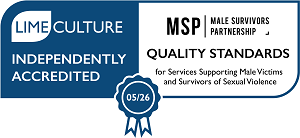 Hub, Counselling and Therapy Services
Hub, Counselling and Therapy Services
